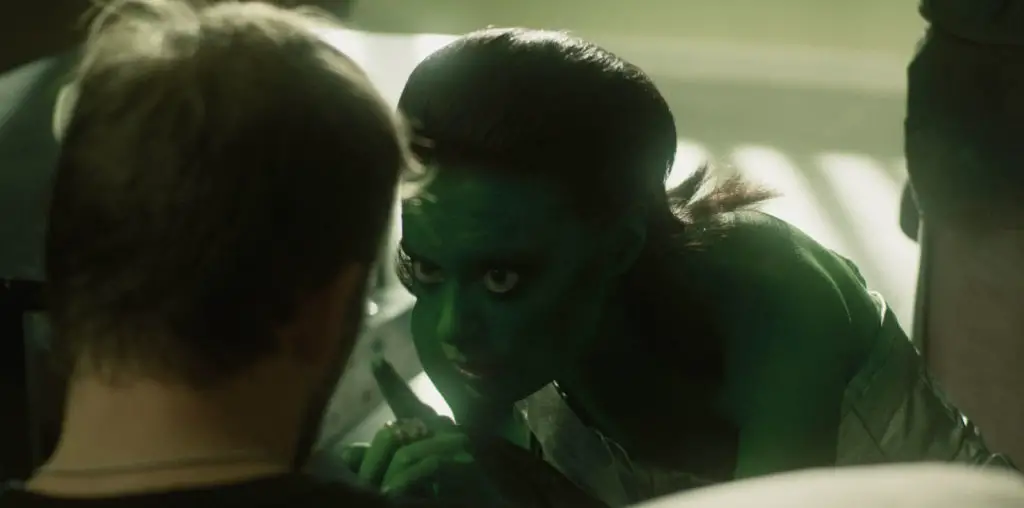
Famous as much for its hippy-trippy soundtrack and a naked Britt Ekland, 1973’s “The Wicker Man” was also a fairly layered examination of faith and religion. While not exactly a horror movie, it nevertheless provided an atmosphere of growing dread and portent leading to a – for its time – shocking finale. “The Wicker Man” wasn’t just about one man’s inability to come to grips with an unfamiliar worldview, it was a forceful statement about why sticking to one’s guns might not always be the best course of action.
Neil LaBute’s remake, starring a rather gaunt Nicolas Cage in the Edward Woodward role, lacks any such ambivalence. Subtlety has never been a strong suit for us Americans (and neither is geography, which must be why LaBute moved the location halfway across the world from Scotland to Puget Sound), meaning the grim portents and ominous sense of foreboding are there from the beginning. Cage plays Edward Malus, a highway patrolman trying to come to grips with a tragic accident. Distraction comes in the form of a letter from his ex-fiancee, Willow (Kate Beahan), who pleads with him to come to her island home of Summersisle to find her missing daughter. Malus, ignoring the sage counsel of his buddy, casts aside notions of legal jurisdiction and heads off to the mysterious island.
Things on Summersisle are hinky from the start. For starters, the place is a matriarchy, where men are relegated to servitude, physical labor, and…other duties (judging by the number of pregnant females). Further, Malus’ investigation is stymied at every turn by island residents (including the likes of Leelee Sobieski, Frances Conroy, and Molly Parker) who claim to know nothing of the young girl’s existence. Willow (now “Sister” Willow, in keeping with the island’s naming conventions) is of little assistance, being too scared of the others and of the island’s leader, Sister Summersisle (Ellen Burstyn), who reinforces Malus’ dawning realization that something sinister is going on.
LaBute has one thing going for him, in that the original “Wicker Man” is – compared to the likes of “The Texas Chainsaw Massacre” and “Night of the Living Dead” – relatively unknown, meaning the inevitable remake backlash might not be quite so vituperative. This assumes, of course, that he could put his own distinctive stamp on the film. Those precious few remakes that have outstripped their predecessors (“The Thing” and…”The Thing”) have done so thanks to the new director introducing something fresh to the proceedings.
Unfortunately for LaBute – and us – unnecessary life-endangering situations (falling through a rotting barn floor?) and hallucinatory red herrings don’t cut it. The main thrust of the film is the same, including about 75% of the scenes, but LaBute rolls the dice with his protagonist, and he craps out. Woodward’s Sgt. Howie was a devout man of purpose, while Malus is a man in search of one. In lieu of the Howie’s staunch faith, LaBute uses the accident to try and give Malus some sort of depth, but it doesn’t work.
“The Wicker Man” is laughably bad in places (“The bees!” The bear suit!), but I can see where LaBute is going: Howie was, ultimately, an insensitive character whose lack of respect for the islanders blinded him to their motives. LaBute adds the element of gender politics (and we all know how fond he is of those), but the end result is unintentionally hilarious, and by the time we reach the climax, the belated sympathy we felt for Howie is replaced by a smug “told you so” feeling.
